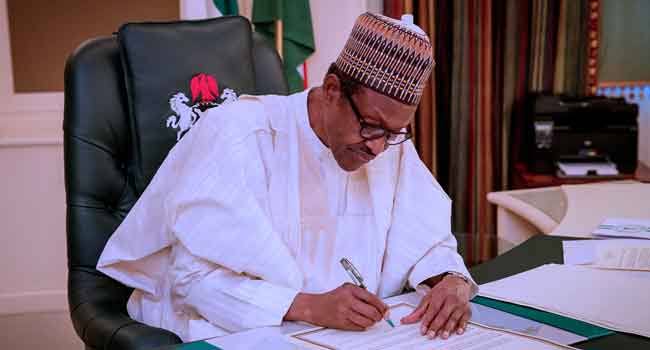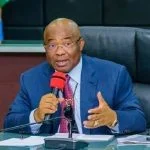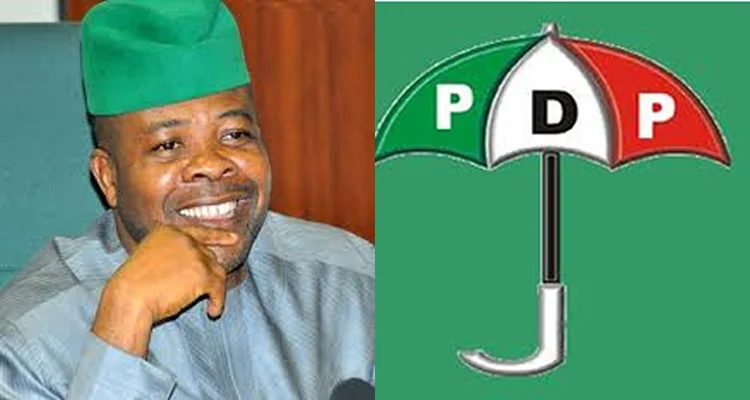DESPITE public outcry against frequent borrowings, the federal government yesterday hinted of its plan to borrow more in order to finance the N6.258 trillion deficit in the proposed 2022 budget.
This came against the backdrop of Federal Executive Council’s approval of N16.39 trillion as 2022 Appropriation Bill.
The country’s total public debt stock currently stands at N35.5 trillion as at June 30, 2021. This comprises total domestic debt of N21.8trillion and total external debt of 13.7 trillion.
The government also explained that the total money borrowed as at July 22 was 23 per cent of the Gross Donestic Product, GDP.
The Minister of Finance, Budget and National Planning, Mrs. Zainab Ahmed, who disclosed the council’s approval at yesterday’s meeting while briefing State House correspondents at the end of the meeting presided over by President Muhammadu Buhari, at the residential Villa, Abuja, maintained that it was necessary that government continued to borrow in order to fund developmental and infrastructure projects, since it could hardly get enough from its revenues.
The minister noted that Nigeria’s revenues could barely accommodate services, even as she emphasized that despite the concerns, its borrowings were still within acceptable limits.
Mrs Ahmed said: “If we just depend on the revenues that we get, even though our revenues have increased, the operational expenditure of government, including salaries and other overheads, is barely covered or swallowed up by the revenue.
“So, we need to borrow to be able to build these projects that will ensure that we’re able to develop on a sustainable basis.
“Nigeria’s borrowing has been of great concern and has elicited a lot of discussions.
“But if you look at the total size of the borrowing, it is still within healthy and sustainable limits. As at July 2021, the total borrowing is 23% of GDP.
”When you compare our borrowing to other countries, we’re the lowest within the region, lowest compared to Egypt, South Africa, Brazil, Mexico, the very lowest, and Angola.
“We do have a problem of revenue. Our revenues have been increasing. We just reported to Council that our revenues from non-oil has performed. at the rate of 111% in July, which means outperforming the prorated budget.
“But our expenditure, especially staff emoluments have been increasing at a very fast rate, making it difficult to cope with funding of government.
“So, what we have to do is a combination of cutting down our costs, as well as increasing revenues to be able to cope with all that is required for government to do, including salaries, pensions debt service, as well as capital expenditure.”
The minister said FEC noted the changes in the 2022-2024 fiscal projections based on implementation of the Petroleum Industry Act 2021 and other necessary expenditures that should be accommodated in the 2022 Budget.
She also disclosed the key assumptions and targets underlying the budget provisions, including oil price, $57 per barrel; oil production, 1.88 mbpd; exchange rate – N410.15/US$; oil revenue, N3.15 trillion; and non-oil revenue, N2.13 trillion.
Others she gave, include Federal Government’s independent revenue of N1.82 trillion; total projected Federal Government revenue of N10.13 trillion; debt servicing of N3.61 trillion; statutory transfers of N768.28 billion (including N462.53 billion capital component) and personnel costs and pensions of N4.69 trillion; (inclusive of N617.72 billion for the 63 GOEs).
Others are overhead costs of N792.39 billion (inclusive of N451.0 billion for the 63 GOEs); and capital expenditure (inclusive of capital component of Social Investment Programme, capital in Statutory Transfers, capital of 63 GOEs, Capital Supplementation as well as Grants and Donor funding) of N5.35 trillion(inclusive of N647.08 billion for the 63 GOEs).
“The resultant deficit of N6.258 trillion which will be financed by new borrowings of N5.012 trillion (of which domestic – N2.506 trillion and foreign – N2.506 trillion); drawdowns on Project-tied Multilateral/Bilateral loans – N1.156 trillion; and Privatization Proceeds of N90.73 billion,” she stated.
On the approved 2022 Appropriation Bill for an aggregate expenditure of N16.39 trillion for 2022, the minister gave the components as the adjustments to the Medium-Term Fiscal Framework 2022-2024; Statutory Transfers of N768.28 billion and Debt Service of N3.61 trillion and Sinking Fund for Maturing Debts of N292.71 billion Naira.
Others are Recurrent Expenditure (Non-Debt) of N6.83 trillion, inclusive of N350.0 billion for the recurrent component of Social Investment Programme; and Aggregate Capital Expenditure of N5.35 trillion, inclusive of GOEs’ capital expenditure, multilateral/bilateral loan funded projects, Capital Supplementation and Grants/Aid funded projects.
According to her, this represents 33 per cent of the expenditure budget.
Mrs Ahmed, who noted that President Buhari was intent on leaving improved agriculture production in the country, said: “Currently, the agriculture sector contributes 23 per cent of the GDP. We have record of expanding the agricultural value chain; we’ve had very little or no processing in agriculture until this administration.
“We now have a very large number of fertiliser blending plants, about 42, that are operating at full capacity. We also have a large number of rice mills that didn’t exist before.
“We have a lot of Nigerians that have taken up agriculture as a business, but apart from agriculture, the President is also rolling out rail lines, some of which started several years ago but have been completed.
“The Lagos/Ibadan rail line is now put to use. We all know about the Abuja/Kaduna and also the Itakpe/Warri rail line has been completed. Work has kicked off on the Kano to Kaduna end of the Lagos/Kano/Ibadan rail line.
“So, Mr. President wants to leave these rail lines. Rail is very important because it is a major means of moving goods across the country.
“When the rail lines are completed, they will provide much needed relief in terms of movement of goods that our roads now suffer by use of trucks.
“We are also investing in deployment of major roads. Some of them are completed, some are at various levels of completion. There’s also the 2nd Niger Bridge that is also going to be completed during the tenure of this administration.
“The major projects that I just mentioned are fully provided for in the budget. The Federal Ministry of Works and Housing has a provision of N388 billion; the Power sector has about N377 billion; the Ministry of Agriculture has N98 billion; the Transportation Ministry has N189 billion.
“So, all the major projects are being provided for. The target is to make sure that we have some of these key projects completed and commissioned during Mr. President’s tenure.”
On the difference between the price of crude oil and the $57 benchmark for the 2022 budget, the minister said: “You know that the crude oil price in the international capital market is not stable, it goes up and it comes down.
“Our assessment is that $57 per barrel is a safe zone to be in and we did this after extensive consultations with CBN, we checked the research work of the World Bank and other institutions, whose concern is investigating and researching on crude oil prices.
“But you know, the revenue in the budget for oil and gas is a function of the level of production as well as the price.
“We had suffered some setbacks in terms of level of production, occasioned by the limits that OPEC set. But thankfully, OPEC has changed our quota and that will also soon ramp up.
“In the event that revenues from oil and gas outperform the budget, there is always the safeguard that the excess goes into, the Excess Crude Account.
“We have not witnessed that in the past one and a half years because the revenues have been very cyclical.”
Vanguard News Nigeria






2 Comments